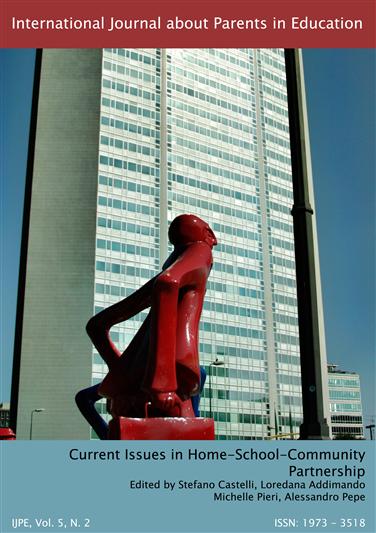Adolescent homework management strategies and perceptions of parental involvement
DOI:
https://doi.org/10.54195/ijpe.18182Abstract
Throughout adolescence, the school, family and peer group can play an influential role in a young person’s psychological development and adjustment to school. This study focuses on the importance of the family during the adolescent period as it applies to developmental opportunities and the self-regulation necessary for the acquisition of psychological autonomy and new skills. How do adolescents perceive parental involvement? Does this parental support meet their need for autonomy and help adolescents acquire the necessary academic skills? This study examines the way in which French adolescents perceive the topic of homework and the interest their families show in it. Research is based on the parental involvement models of Epstein (2001) and Hoover-Dempsey and Sandler (1995), which focused on parental practices of monitoring schoolwork. These practices reflected the overall roles, involvement, and support of parents in their adolescent’s education. On a voluntary basis, 504 adolescents aged 12−15 responded to a questionnaire, with questions adapted from the ‘Child perceptions of parent’s structuring and activities related to homework’ (Cooper et al., 1998). The results of this study show that the perceived involvement and efficacy of parents have an effect on adolescents’ self-regulation strategies. This parental interest, then, is implicitly passed on to the adolescent by way of parental homework assistance.Downloads
Published
2023-11-11
Issue
Section
Articles
How to Cite
Adolescent homework management strategies and perceptions of parental involvement. (2023). International Journal about Parents in Education, 5(2). https://doi.org/10.54195/ijpe.18182





